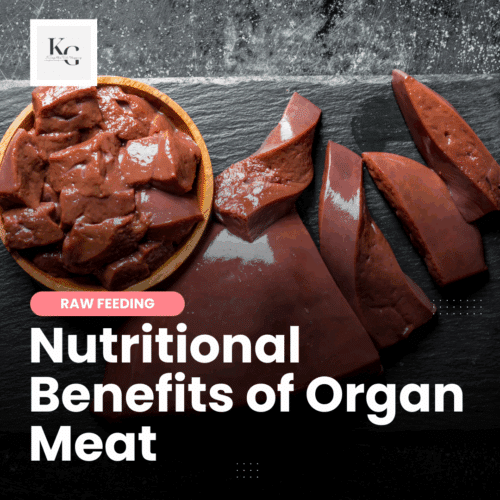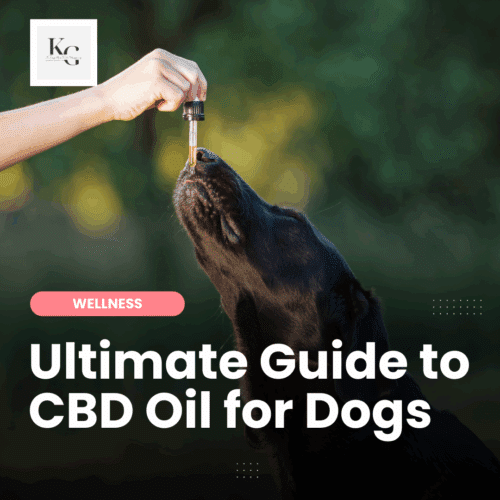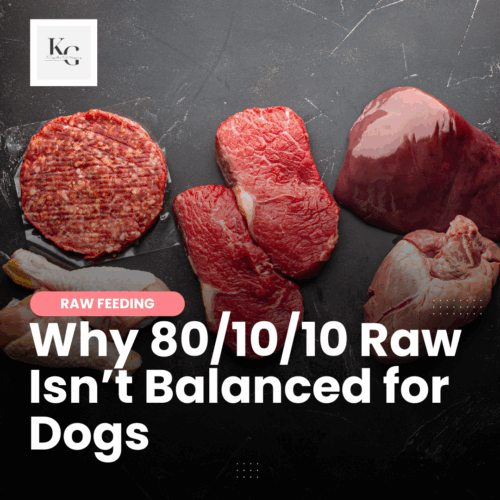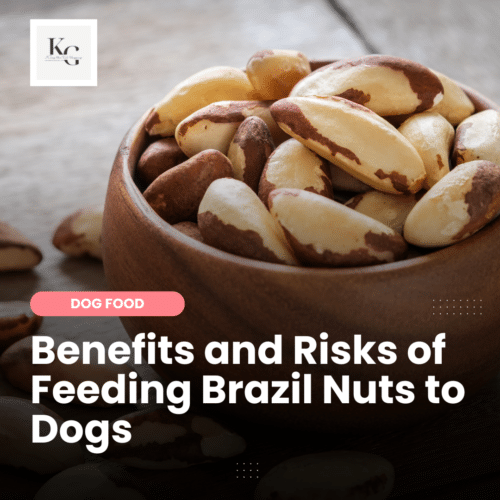Keep the Tail Wagging is supported by pet parents. I occasionally earn a commission (at no additional cost to you) when you click through an affiliate link to one of my favorite products. Thank you for your support. Read More
When I was young, I used to say things like “I'm so depressed” when I was merely bummed out about something mundane. And then I hit rock bottom, and my depression took hold of me and wouldn't let go, and I learned that depression is more serious than being “bummed out.” I would say, “I have such a migraine,” when it was simply a headache. And then I got a migraine that dropped me to my knees, and it took what felt like ten years to crawl to the blessed darkness of my bedroom.
My point is that we as a society often make the mistake of downplaying serious health conditions and not taking the suffering of our fellow humans seriously. This is why I was surprised to see Psychology Today broaching the topic of raw feeding again under the guise of saying “behavioral issues” are involved.
“My psychological interest in this matter came from the fact that it appeared to me that the dog owners who insisted on a raw food diet for their dogs might be showing some form of orthorexia nervosa. This is a proposed eating disorder which is marked by an excessive preoccupation with eating healthy food.” ~ Stanley Coren PhD., DSc, FRSC for Psychology Today
Instead of questioning the cleanliness of raw feeders, this time, Mr. Coren, author of the “Canine Corner” of Psychology Today, decided to tackle our mental health.
What is Orthorexia Nervosa?
“Although not formally recognized in the Diagnostic and Statistical Manual, awareness about orthorexia is on the rise. The term ‘orthorexia’ was coined in 1998 and means an obsession with proper or ‘healthful’ eating. Although being aware of and concerned with the nutritional quality of the food you eat isn’t a problem in and of itself, people with orthorexia become so fixated on so-called ‘healthy eating’ that they actually damage their own well-being.” ~ NationalEatingDisorders.org
Our mental health is being called into question because we choose to feed our pets a species-appropriate diet. And Mr. Coren is suggesting that raw feeders are so obsessed with healthy eating that we're projecting this undiagnosed eating disorder onto our dogs, thereby putting our dogs' health at risk.
Well, I disagree.
What are the Signs of Orthorexia Nervosa?
According to Timberline Knolls, a treatment center focused on eating disorders, people diagnosed as having Orthorexia Nervosa may avoid foods that contain…
- Artificial colors, flavors, or preservatives
- Pesticides or genetic modification
- Fat, sugar, or salt
- Animal or dairy products
- Other ingredients considered to be unhealthy
A few of the foods and ingredients in the above list have been linked to shorter lives, diabetes, heart disease, liver disease, obesity, cancer, and other health issues. After the shocking documentary Super Size Me, I thought we as a society agreed that eating a diet primarily of fresh foods was a good idea. We should either avoid processed foods completely or treat them as an occasional treat instead of a regular part of our diet. Was I wrong?
- Read 11 Companies Removing Artificial Colors and Flavors by 2018
- Read What Do Salt & Sugar Do to Your Body?
As I continued to read about Orthorexia Nervosa, I learned that the signs of this disorder in humans include…
- Obsessive concern over the connection between the food we eat and common health issues.
- Avoidance of food due to suspected allergies and intolerances without first seeking medical advice.
- Adding herbs, probiotics, and other natural supplements to one's diet.
- Reduction of acceptable food choices to a handful of options.
- Increased concern over food preparation techniques.
Reading this list of signs doesn't raise a red flag for me; I recognized common discussion topics in raw feeding groups and on my blog. When did the desire to eat healthy become an eating disorder? It turns out that this isn't about eating healthy. Orthorexia Nervosa is a serious condition, and the more I learned about it, the more shocked I was to be diagnosed by a stranger with this eating disorder. It smacks of ignorance and insensitivity.
“A person with orthorexia nervosa has become so fixated on eating healthy food that this one goal begins to squeeze out and diminish other important dimensions of life. Thinking about what to eat replaces relationships, friendships, career goals, hobbies and most other pleasures of being alive. In extreme cases, the obsession with restricting one’s diet can lead to dangerous malnutrition, a truly ironic consequence of what began as a search for improved health.” ~ Dr. Steven Bratman, who coined the term “Orthorexia Nervosa” in 1997, for Mirror-Mirror.org
Raw feeders have been tagged with having a form of an undiagnosed eating disorder because…
- we want to feed our dogs fewer to no processed foods
- we seek herbs and other natural supplements to treat health issues
- we choose to add probiotics to improve our dogs' gut health because 80% of the immune system lives in the gut so, healthy gut, healthy dog
I found this connection interesting and immediately thought of the film Super Size Me (excerpt below). We learned the damage a steady diet of processed foods can do to a man in 30 days; what can a daily diet of processed foods do to pets over their shortened lifespan?
Healthy Diets and Eating Disorders
In this latest Psychology Today article about raw feeding, Mr. Coren admits that to connect the topic of dog nutrition to psychology (the study of the mind), he now questions the mental health of raw feeders. He disregards the amount of work, research, and study that raw feeders undergo regularly (we're always learning) to learn about animal nutrition. By allowing Mr. Coren to belittle raw feeders around the globe, Psychology Today disregards the individuals who are struggling daily with eating disorders.
“Though Orthorexia Nervosa is considered a serious medical condition and cluster of symptoms, media outlets have used the disorder to erroneously label adherents of restrictive diets — particularly Paleo Dieters and Vegans — for the sheer purpose of garnering click-bait attention. The unfortunate outcome of this usage is that Orthorexia Nervosa is not getting the attention it requires, and Paleo Dieters and Vegans alike are outright suggesting that the entire concept that Orthorexia is Bullshit.” ~ Karen Pendergrass, Orthorexia is Bullshit: A lesson in Intellectual Laziness
“20 million women and 10 million men will struggle with an eating disorder at some point in their lives. Eating disorders have the highest mortality rate of any psychiatric illness. Besides medical complications from binge eating, purging, starvation, and over-exercise, suicide is also common among individuals with eating disorders. Potential health consequences include heart attack, kidney failure, osteoporosis, and electrolyte imbalance. People who struggle with eating disorders also have intense emotional distress and a severely impacted quality of life.” ~ National Eating Disorders.org
“The media downplays [eating disorders] almost as a “celebrities disease.” And it takes a month of a spa resort, rehab to be healed. So not the case. My dog is my world and I take her nutrition very seriously. If I were putting my disorder on her, she wouldn't eat either. I actually put aside my terrible relationship with food, to ensure she has what she needs.” ~ Peggy Williams
What it's Like to Have an Eating Disorder
In preparation for this post, I read many articles and blog posts written by individuals who have eating disorders. I thought I had a grasp on what an eating disorder was, but I honestly had no idea. Someone once shared that the term “binge-watching” was triggering to her; I didn't understand how such a mundane phrase could be triggering – now I have a better idea.
- People with eating disorders obsess about food all day, every day.
- People with eating disorders find the act of eating torturous.
- People with eating disorders may struggle with eating in public.
- People with eating disorders are hyper-aware of food and what others are eating.
- People with eating disorders may also be obsessive about their bodies.
- People with eating disorders may also suffer from anxiety and depression.
- People with eating disorders experience intense shame after eating.
- People with eating disorders may have a distorted view of their physical appearance.
“When people are “showing off” that they have or want to have an eating disorder it’s very hard to navigate my own feelings about at times. When it’s talked about like that it’s very clear to most people who have an ED that the other person doesn’t understand the severity of what it means to actually have it. That can make it feel even more isolating because if you do start talking about it with them they compare it to you while making it about themselves and how “cool” it is. I KNOW they don’t understand the depth of the problem so they can’t empathize and don’t realize that the person may need help in a more real way than just with offhanded comments. It’s played off as a fad to jokingly say you have it because skinny is pretty and more desired over being truly healthy.” ~ K Fiona Dunn
Should We Wait for Science?
Stanley Coren states, “[a]necdotes based on the personal experience of some dog owners or theories about the natural history of dogs are insufficient reasons to ignore the solid scientific evidence of harm that raw diets can cause.” My question to Mr. Coren is, where is the solid scientific evidence of which he speaks?
While we can go back and forth on the many achievements of modern man brought about by faith as science played catch up, I want to jump ahead and ask whether we should wait for science? If you have a dog suffering on a diet of commercial dry dog food, should you wait for science before trying a species-appropriate diet that works for others? If your dog is diagnosed with cancer, should you wait for science before trying herbs that have been accepted as beneficial in many areas of the world for centuries? And do we need science to tell us that a diet of processed foods fed over a lifetime isn't good for any of us – humans and pets?
Just because you don't understand something doesn't mean it lacks value or truth. Just because someone hasn't forked over a fortune to fund a scientific study on species-appropriate pet nutrition doesn't mean that raw feeders are wrong or that we have a form of an eating disorder.
It seems like a huge leap to go from ‘there's no scientific study' to ‘you have an eating disorder.'
“While they provide very strong evidence for those theories, they aren't proof. In fact, when it comes to science, proving anything is an impossibility.” ~ Ethan Siegel, Scientific Proof Is A Myth
We Don't Feed Raw Due to a Disorder
The article that inspired this response is entitled “Additional Evidence on the Dangers of Raw Diets for Dogs,” however, the author doesn't come through (IMO). I expected a serious study, mounds of research, and SOMETHING that proved that pet parents, holistic veterinarians, animal nutritionists, pet store owners, and raw pet food brands around the globe are wrong. Instead, the article reads as one person's opinion on the mental health of raw feeders and his conviction that raw feeding is dangerous to dogs because of a study about feeding chicken necks to dogs in Australia. Mr. Coren wraps up his article stating that because we suffer from a form of Orthorexia Nervosa, we'll ignore the “study,” and continue putting our dogs' lives at risk because we're projecting our unhealthy relationship with food onto our pets.
Just wow!
Raw feeders are a passionate bunch of pet parents. We can be obsessive about reading ingredients, understanding sourcing, and calculating macro and micronutrients. We tend to be know-it-alls, we stress when new information hits the community (but we're excited too), and we can be a bit cliquish. We love our pets and often place their nutrition, health, and happiness before our own because we want them to be with us for as long as they can, and we have learned that a diet of processed foods isn't the path that leads to a longer life for animals.
Once again, Mr. Coren broaches a topic he knows nothing about, and Psychology Today fails to be an advocate for individuals who live with an eating disorder. So I decided to speak up. At first, this was going to be a blog post that simply called bullshit, as, once again, someone reached deep to come up with a reason why raw feeding is “bad.” However, as I learned more about eating disorders and messaged back and forth with people living with eating disorders, I found that simply calling “bullshit” wasn't enough.
This week, I came across the following articles that are simultaneously eye-opening and heartbreaking. Please note that if you do live with an eating disorder, you may find these articles triggering:
- 17 People Describe What it's Like to Have an Eating Disorder, Sarah Schuster for The Mighty
- What It's Really Like To Live With An Eating Disorder, Gina M. Florio for Bustle
- Busting Myths About Eating Disorders, NationalEatingDisorders.org
- Orthorexia is Bullshit: A lesson in Intellectual Laziness, Karen Pendergrass for Medium
- I Have An Eating Disorder. This Is What My Life Is Like, JJ Barrows and Kara Wahlgren for Prevention.com
If you or someone you love has an eating disorder, there is help available. The NEDA Helpline is available Monday-Thursday from 9 AM to 9 PM ET, and Friday from 9 AM to 5 PM ET. Call (800) 931-2237.
Thank you to everyone who took the time to share their experience living with an eating disorder.

















Dr. Stanley Coren,
After reading your article, “Dog Owners Are Wrong About the Health Benefits of Raw Diets”- March 16, 2017, all I can say is shame on you. I personally have 4 dogs, 2 of whom had chronic health issues. Traditional Veterinary treatments were as costly as they were ineffective. Not a single of the numerous Veterinarians we sought help from concerned themselves with anything more curative than the temporary treatment of the symptoms of these chronic health issues. They exhibited no curiosity or concern to the cause for these chronic health issues. In desperation born out of our frustration at traditional medicine’s failure to treat our dogs we turned to a species appropriate raw diet. Within the first month of transitioning our dogs to this diet their chronic health issues completely and permanently vanished.
I base my belief upon experience and empirical evidence. You base your conclusions upon nothing more substantive than the “findings” of those having a clear conflict of interest and equally clear financial interest in perpetuating a belief in industrialized pet foods.
To suggest that these findings are objective and impartial is to suggest that the tobacco industry sponsored studies of the effects of cigarette smoking were accurate.
Your basis for this “research” of yours was as disingenuous as your supposed findings. A woman careless enough to infect a child in her care from the effects of handling raw meat leads you to conclude that, instead of lecturing her on safe food handling methods, you somehow believe it credible to delegitimize raw feeding. When a drunk driver kills an innocent, do you advocate doing away with cars?
For decades the medical establishment accepted as fact that ulcers were caused by stress. Given this fact no further research was done until an inquisitive medical professional who was free thinking enough to question the medical establishment and do his own research, discovered that a certain bacteria was responsible. For this he was awarded a Nobel Prize. May I respectfully suggest that, you follow his example by instead of accepting the establishment’s “facts” you do your own damn research. I would not have the temerity to challenge or question you on the subject of psychology, but all too often an expert in one field sees fit to offer their scholarship on another and are seemingly given credibility. Are you a physiologist or a nutritionist? You have done a disservice to every dog owner with your misinformation and for this I again say shame on you.
Sincerely,
Elyse Gilbert
Thank you for addressing this person who unfortunately uses his ‘credentials’ to inflame dog owners who feed a raw diet to their dogs. I wrote an open letter to him after reading his first biased article on 3/17/17. I also wrote a reply to a Veterinarian who commented in agreement on that article. Like you said, it is deplorable that a publication such as Psychology Today supports and publishes these articles that are not fully researched and clearly one sided. I would like to contact Psychology Today directly about this misinformation… again a big THANK YOU.
Kudos on a really brilliant response to an insidious piece of “research”.
I am so pleased to discover your work.
I don’t know who this Coren is but I would not be surprised if there
was some relationship with Corporate Pet Food fertilizing his efforts.
Disgusting. Saying that raw feeders have an eating disorder is offensive to both people who actually suffer from eating disorders, and to raw feeders who are just wanting to give their dogs a better diet.
You provided a well thought out and well written response. I’m glad to have “met” you (if only through cyberspace).
I have lost all respect for Stanley Cohen?What a load of crap and what does someone’s own illness have to do with raw feeding?♀️
Here I was thinking Stanley Coren cared about dogs and was someone whose books were worth reading. I think your reference in the post to click bait might actually apply to his article in PT as well.